Democrats Have A 2014 Voter Enthusiasm Problem
If current trends holds, Democratic candidates are going to have a problem turning out voters in November.
In addition to the President’s declining poll numbers, Democrats have something else to worry about in the upcoming midterms, voters who don’t have any inclination to get to the polls:
The history-making coalition that delivered the presidency to Barack Obama in 2008 and reelected him in 2012 has a distinct attitude toward the 2014 election: Meh.
A new poll from Democratic pollster Democracy Corps finds that just 68 percent of African Americans, Latinos, young people and unmarried women who voted in 2012 and are “likely” to vote in 2014 — the four key parts of Obama’s coalition — say they are “almost certain” to vote in the upcoming midterm elections.
That’s up four points from April, when 64 percent said the same. But it’s still lagging far behind other voting groups, a combined 85 percent of whom say they are almost certain to vote. The new 17-point gap is up from 15 in April and 11 in March of last year.
For comparison’s sake, at the tail end of the Democrats’ disastrous 2010 campaign, the gap was 22 points.
The WaPo’s Aaron Blake goes on to note the trouble this could spell for Democratic candidates in the fall:
We wrote back in April how troubling this news is for Democrats. That’s because their 2008 and 2012 coalitions were notable in large part because of these four groups, which don’t generally turn out big but did so for Obama.
And the effect on the 2014 election is clear. While the less-enthusiastic “Rising American Electorate” (the pollster’s name for the Obama coalition) favors Democrats by 19 points, all of the other, more-enthusiastic voter groups combine to favor Republicans by 18 points.
And these aren’t the only polls to suggest midterm turnout is a looming problem for Democrats. An April AP-GfK poll showed, among those who are strongly interested in politics — i.e. most apt to vote – people favored a GOP-controlled Congress 51 percent to 37 percent.
In some sense, of course, this is not really anything new.
Voter turnout in midterm election years has been lower than turnout in Presidential years ever since such statistics started being tracked back in the 1960s, and turnout in the real “off” years, the odd numbered years when there is little on the ballot except state and local elections and, every four years the Governors races in New Jersey and Virginia, turnout is typically even lower. The reasons for this phenomenon are easy to figure out. Miderm and off year elections don’t get nearly as much media coverage as the Presidential election does, for one thing, which means people simply don’t become as engaged in them as they do the Presidential race. Public cynicism about politics in general and Congress in particular means that people are more likely to tune things out in a midterm year, and in a nation where voter turnout in Presidential elections only hit about 57% in 2012 and 62% in 2008, it isn’t at all surprising that the turnout rates in other years would be lower. It’s also generally been the case that turnout in midterm years tends to favor Republicans, because the voters that are likely to stay home are the young and minority voters that give Democrats their electoral edge in many parts of the country.
That being said, these turnout tendencies have not prevented midterm elections from having lasting consequences. The midterms in both 2006 and 2010 resulted in massive shifts in Congressional control, in one case for Democrats and in the other for Republicans. In both years, total overall turnout was roughly the same — 41% in 2010 and 40.4% in 2006 — and yet one of those two races resulted in a Democratic wave that set the course for Barack Obama capturing the Presidency two years later. The difference between the two elections isn’t how many people turned out, but who turned out. In 2006, Republicans were demoralized while Independents and Democrats were strongly motivated to opposed the Bush Administration. In 2010, the situation was reversed and so was the outcome.
As we head into 2014, polls like this are suggesting that we’ll see a replay of 2010, albeit on a smaller scale. However, it won’t take a 2010-style wave election for things to change drastically in Washington. Republicans already have control of the House, and that is not going to change in November. In the Senate, Republicans are faced with a host of opportunities to pick up the six seats that they need to gain control of the upper chamber of Congress and, if these enthusiasm numbers hold out, there’s a good chance they’ll be able to do so. A lot can change between now and November, of course, but at the moment Republicans are much more motivated to vote in November than Democrats are, and that’s all they would need to come out on top.
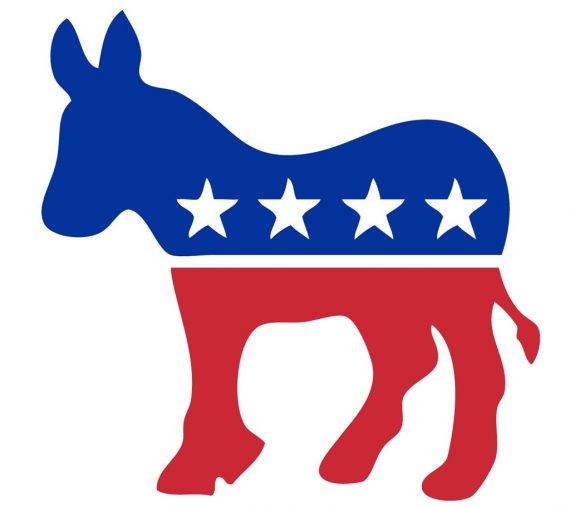

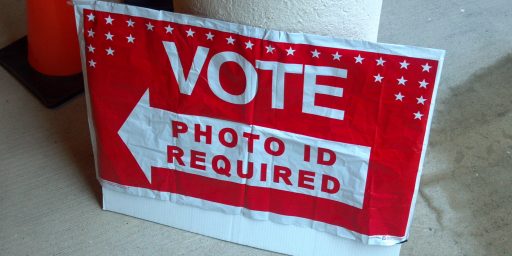
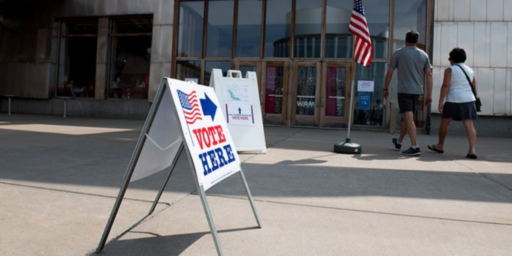
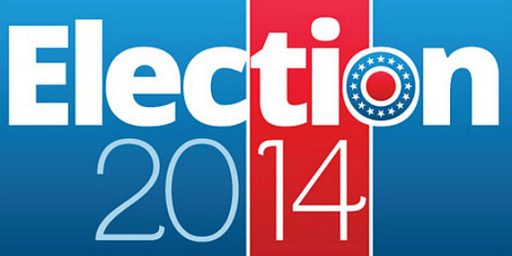
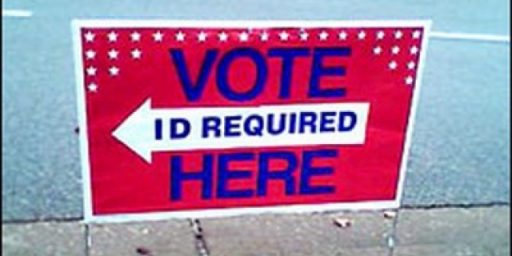
I really think that all voting should be done by mail or spread it out over a week or even a full month so that people can get the polls on their own terms. As it is right now elections are not very convenient.
Maybe we could convince them they’ll be voting for Thad Cochran.
I can see why there is voter enthusiasm on the Republican side, that’s where all the action is (whether candidates are dead or alive.)
Best hope for GOP agenda to win at the polls:
Low turnout.
That’s what you’re saying right, Doug?
Unfortunately , fear and hatred (of a black Presidency) are great motivators.
The Democrats can relax. The Tea Party is so enraged by the defeat of McDaniel in Mississippi that they’re determined to do all they can to undermine any Republican running for office.
@stonetools:
Unfortunately , fear and hatred (of
a blackinept Presidency) are great motivators.I fixed that for you.
Since the Cochran-McDaniel election has come up, this is relevant:
Mississippi’s bizarre political scandal takes a tragic turn
Is it just Democrats? I know that Republicans have a slight advantage in enthusiasm in the midterms but my read is that it still isn’t very high.
For many years we’ve been returning incumbents to office at a rate of 80% or better. Even returning just 2/3s to office would be an earth-shattering change. That might actually happen with a combination of very low voter turnout and widespread disaffection with incumbents.
@edmondo:
You must have Obama mixed up with your buddy George W. By now, you and the rest of your Tea Party buddies are probably blaming Obama for 911, Katrina, the Iraq war, the financial crisis…maybe Pearl Harbor.
@stonetools:
Pearl Harbor is in Hawaii. Barack Obama was (allegedly) born in Hawaii.
Think about it.
@Vast Variety: Here in Oregon and Washington we are 100% vote by mail and it works very well. It saves money and voter turnout is the highest in the nation.
The Dems always have problems with turnout in midterms (as Dave points out, this is true of both parties but it’s relatively worse for the Dems). This is well known.
The best I can hope for is that the GOP does things that inflame Democratic constituencies and this motivates them to vote.
Two ideas:
1) (with apologies to Ayn Rand) “what if Atlas just shrugs?”
2) what if Atlas is actually the progressive movement?
(Feel free to start downvoting and telling me I’m an idiot any time now.)
@Just ‘nutha Ig’rant cracker:
Hmmm… well, I suppose that the Celestial Sphere would be dropped, now, wouldn’t it?
Many forget: Atlas, doing his job, was actually a punishment.
One should never choose to f#ck with the Olympians, as the tea party is coming to realize of late.
The GOP does not care for platform; they care for party, and they care for winning.
Everything else is secondary.